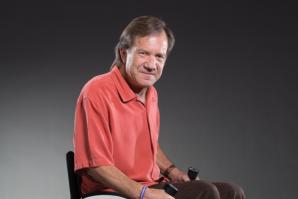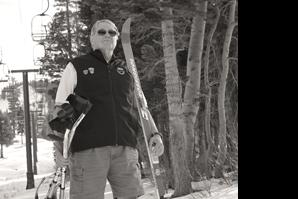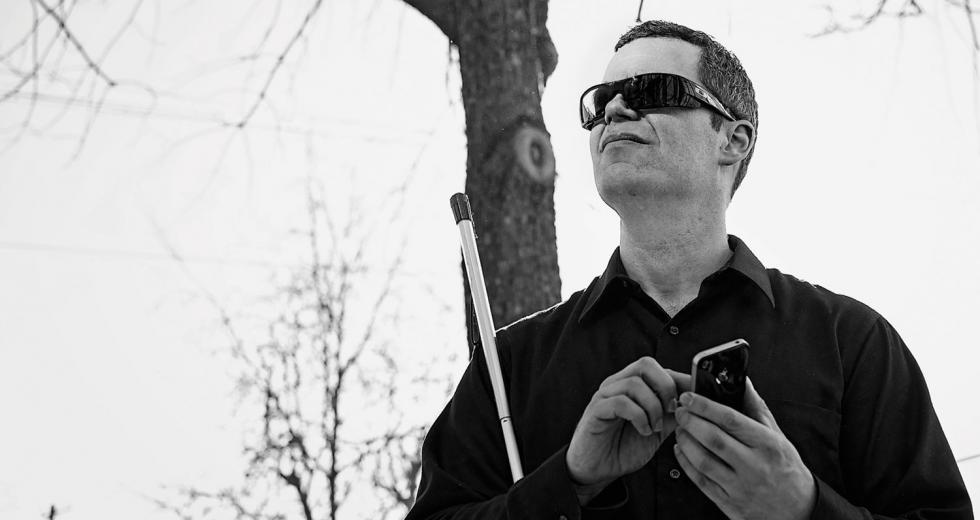Shane Snyder has been fighting his whole life. He is 46 years old and has Usher syndrome, a genetic disorder affecting hearing and vision.
His hearing is corrected with hearing aids, but his ability to see has been getting worse since childhood. He has no peripheral vision, declining tunnel vision and has not driven a car for 12 years. When an instructor at the Society for the Blind recommended in 2005 that he start using a white cane, he declined, not wanting to draw attention to his handicap. Shortly after, he suffered a serious injury from falling over a retaining wall he could not see.
No longer able to read his students’ work, Snyder resigned from his career as an English teacher in 2009.
“Unemployed and on disability, I sunk into a deep depression that lasted more than a year,” Snyder says. “Eventually, I sought psychiatric care and worked with a number of therapists who helped me to move beyond the grief and loss. I was advised to accept the fact that I was going blind and to seek assistance in learning how to live productively and independently as a blind person.”
Snyder became involved in the society’s career development program. He learned about adaptive technology and software, practiced daily living skills and studied Braille. He started volunteering at the society regularly and was hired as a teacher there in October of 2010.
“The work accomplished … is important not only for the individuals who benefit from its services but also for the community and society as a whole,” Snyder says. “Eighty percent of blind people are unemployed and getting paid assistance. There is an important economic benefit if a person can live in their own home, get a job, be self-supportive and be a contributing, tax-paying member of society.”
Snyder now develops instructional programs, manages budgets and grants, and teaches. He uses an adaptive computer program that converts text to speech, and he uses voice commands to send emails and texts on his iPhone.
Snyder knows firsthand what the people coming to the Society for the Blind are faced with and what they need. “I could not have done it alone,” he says. “I recommend that anyone struggling with issues surrounding vision loss seek whatever help it takes to move past grief, anger and fear, and focus instead on learning all there is to know about living well despite blindness.”
For more information on Tim Engle:
www.englephoto.com
Recommended For You

Superquad Rolls Back
One man and his business are reborn. Again.
Most businessmen have a dream of the business they want to build before they begin. Brian Watwood’s vision for his new company was born in a personal nightmare.

Learning to Live Again
Disabled sports bring fresh perspectives
Doug Pringle lost a leg to the Vietnam War in 1968. He was recovering at the Presidio of San Francisco hospital the day World War II veterans stopped by for a visit.



